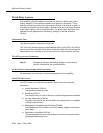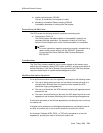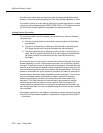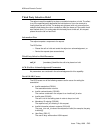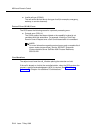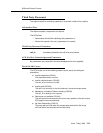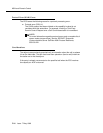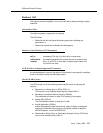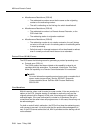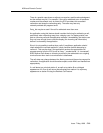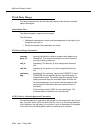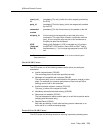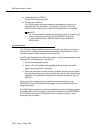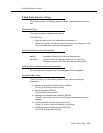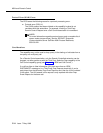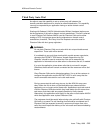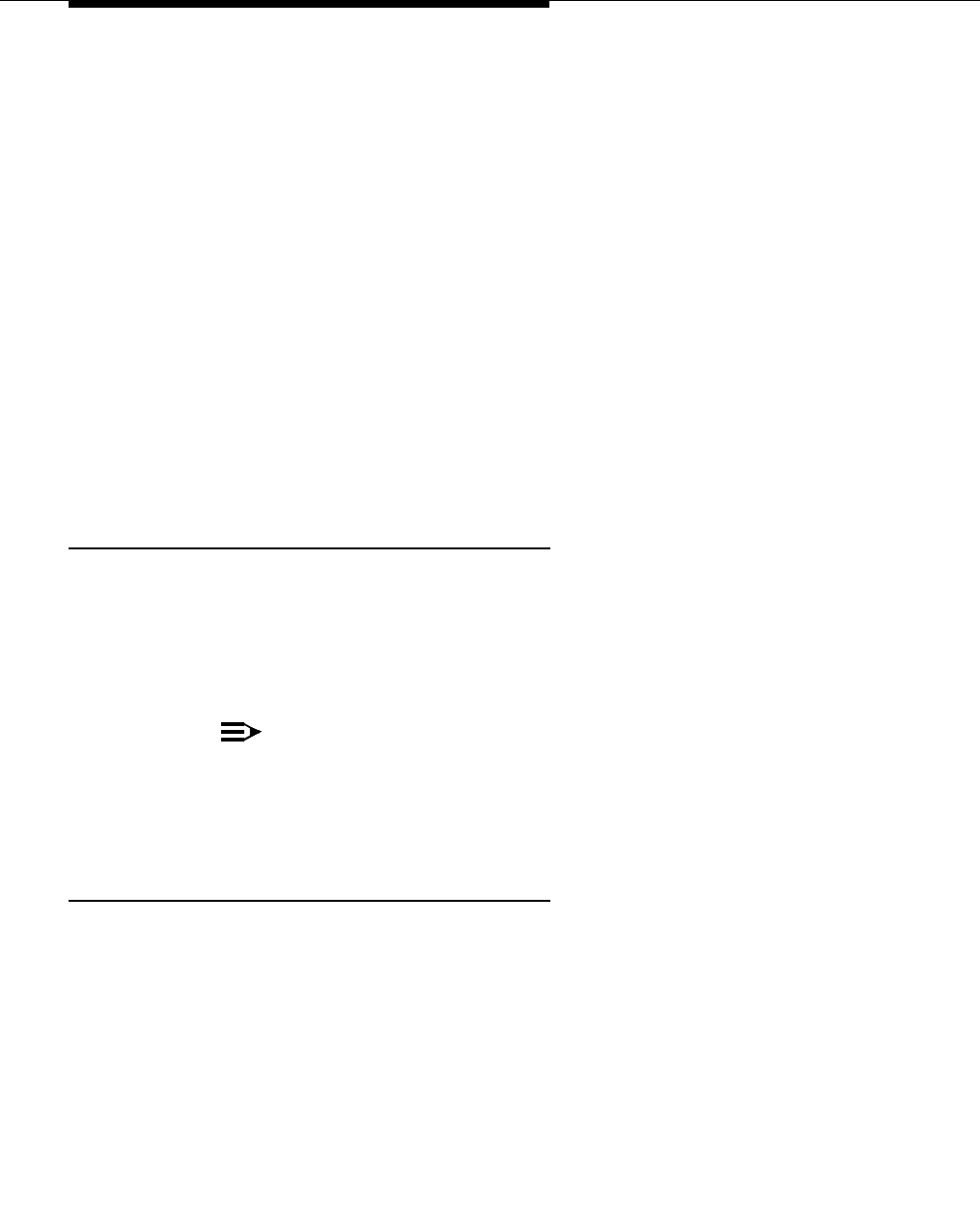
ASAI and Domain Control
5-18 Issue 7 May 1998
■ Miscellaneous Restrictions (CS3/42)
— The redirected-to number cannot be the same as the originating
number or the redirecting number.
— The call is redirecting on the first leg of a switch-classified call.
■ Miscellaneous Restrictions (CS3/43)
— The redirected-to number is a Remote Access Extension, or the
COR check fails.
— The redirecting station is origination-restricted.
■ Miscellaneous Restrictions (CS3/63)
— The redirecting number is not a station extension, the call_id does
not exist, or the call is not in the alerting state or is redirecting while
in vector processing.
— Calls that result in intercept treatment will not be allowed to redirect
even if normally such calls would be sent to an attendant.
Protocol Error (NAK) Causes
The ECS issues the following cause for generating a protocol processing error:
■ Protocol error (CS0/111)
The Q.932 protocol has been violated or the capability invoked is not
consistent with this association. For example, invoking the Third Party
Make Call capability on a Domain Control association is inconsistent.
NOTE:
For more information regarding protocol errors and a complete list of
reason codes (cause values), see the
DEFINITY Enterprise
Communications Server CallVisor ASAI Protocol Reference
,
555-230-221.
Considerations
With this service, when a call is routed to a new number, if the new number is a
station on the ECS, it begins alerting (if available to receive the call) and the
originally-alerted call is dropped. At this point, this alerting call is eligible to be
redirected again. If the new (redirected-to) number is off-premises, the call is
routed there and the caller hears call progress tones. In this case, the call may not
be redirected again.
For both on and off-switch redirection, the ECS will not drop the redirecting party
until success is assured. It is at this point that the positive acknowledgement is
sent. If the ECS cannot redirect the call, NAK is provided and the alerting call will
not be affected.



